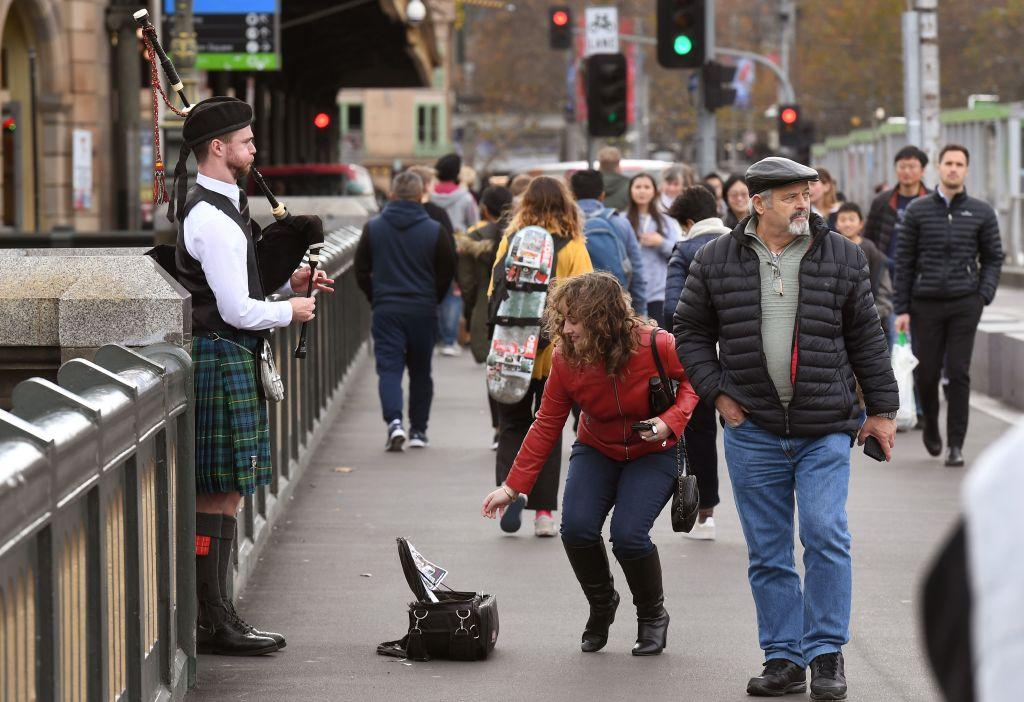At half past midnight on a crisp Melbourne morning, two smiling buskers watched as a shiny steel box was hoisted into the heart of the city.
The repurposed newspaper stand had been turned into a lock-up for their precious props, amps and costumes.

At half past midnight on a crisp Melbourne morning, two smiling buskers watched as a shiny steel box was hoisted into the heart of the city.
The repurposed newspaper stand had been turned into a lock-up for their precious props, amps and costumes.